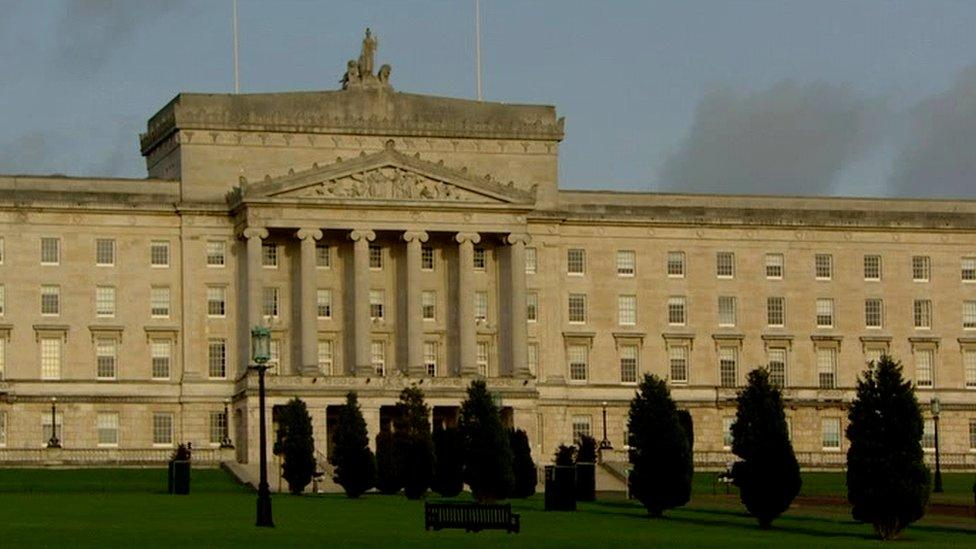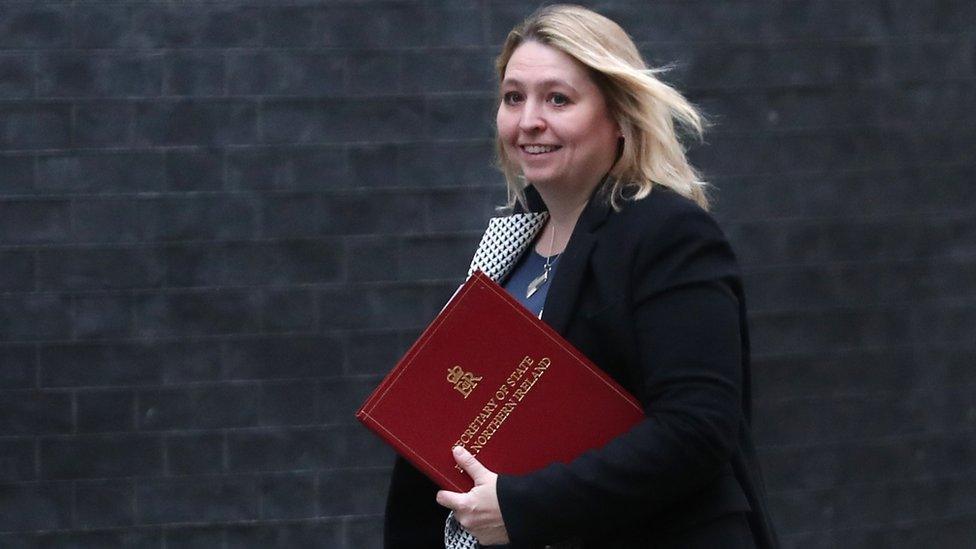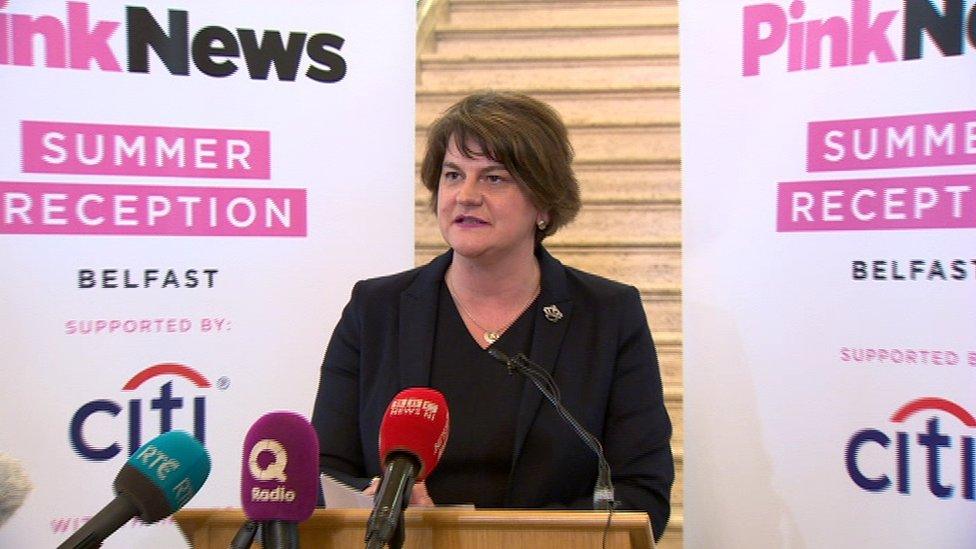Is the UK government performing a 'balancing act?'
- Published

The British-Irish Intergovernmental Conference has not met since February 2007
When I asked Karen Bradley back in April whether she would convene a meeting of the British Irish Intergovernmental Conference, she told me she didn't want to do anything which moved the situation at Stormont backwards.
Back then the Northern Ireland Office seemed more taken with the DUP's preferred option - a transitional or shadow assembly.
However they subsequently appeared to cool on the idea - perhaps after being advised there was a real risk that nationalists would simply boycott such an institution, viewing it as window dressing for increasing direct rule from Westminster.
Now London has acceded to Dublin's repeated requests for the Intergovernmental Conference to meet. That said, the UK government is trying to perform a careful balancing act.

NI Secretary Karen Bradley will be attending the British-Irish Intergovernmental conference in July
Just before pleasing nationalists by confirming the conference meeting, the UK government sought to keep the DUP onside with a promise to make good on commitments to infrastructure projects, external like upgrading the York Street junction in Belfast and rolling out high speed broadband across Northern Ireland.
The government trapeze act also involved UK ministers playing down the significance of the meeting pencilled in for July 25th by pointing out that the intergovernmental conference is "not an executive body". At the same time their Irish counterparts played up the same forum, as a way to discuss the "effective operation of the institutions of the Good Friday/Belfast Agreement".
What's changed since April? Maybe the Northern Ireland Office has concluded that if they give both unionists and nationalists a bit of what they want, neither side is in the mood for outright rejection. The idea of a balance between the Intergovernmental Conference and some shadow proceedings at Stormont was, after all, suggested as an obvious compromise by the Alliance Party back in the spring.
'Good governance'
The Northern Ireland Office remains silent on when the Northern Ireland secretary might get around to cutting MLA's pay. But Downing Street's statement on "good governance" suggests the under employed politicians will play a slightly more active role, saying the government recognises "the value in ongoing consultation with Northern Ireland's democratically elected representatives."
It's hard to see this incremental approach leading to a sudden breakthrough. Further testimony in the RHI inquiry, which will reconvene on September 4 after a summer break, might make a restoration of the executive more difficult. Tensions between unionists and nationalists over Brexit could also create a challenging context in the autumn.
But there are signs of movement in the undergrowth, such as Arlene Foster's charm offensive towards Muslims and the LGBT community, the tick tacking which must have gone on between Mrs Foster and Michelle O'Neill before the DUP leader's visit to the Ulster Gaelic Final at Clones and Mary Lou McDonald's explicit dropping of her party's previous bar on sharing power with Mrs Foster as First Minister.

Arlene Foster said she looks at the LGBT community as "my neighbours and friends".
In addition, with an election in the air in the Irish Republic, some Sinn Fein strategists may conclude that a deal north of the border would be helpful if it wants to project an image of being a responsible party of government in Dublin.
One other element to bear in mind is an impending court challenge by victims of historical abuse, whose lawyers are arguing, amongst other things, that the Northern Ireland Office has far exceeded the "reasonable" time period the courts allowed previous secretaries of state for calling fresh Assembly elections.
When that comes to a full hearing in the autumn, government lawyers would perhaps be able to make a more persuasive case to a judge if some process is underway, no matter how tentative, rather than an absolute political vacuum.
So we are now in a situation in which the secretary of state appears to have concluded that instead of a step backwards which would frighten unionists fearful of joint authority, the Intergovernmental Conference may be part of a strategy to inch forwards. But I still remain sceptical about any real progress this year, although there may be a window for serious negotiations in the first few months of 2019.